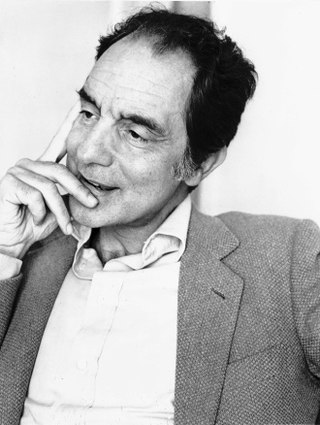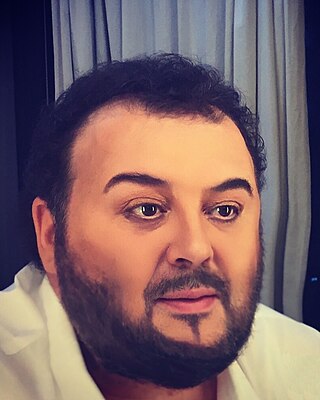Related Research Articles

Italo Calvino was an Italian writer and journalist. His best-known works include the Our Ancestors trilogy (1952–1959), the Cosmicomics collection of short stories (1965), and the novels Invisible Cities (1972) and If on a winter's night a traveler (1979).

Aron Hector Schmitz, better known by the pseudonym Italo Svevo, was an Italian and Austro-Hungarian writer, businessman, novelist, playwright, and short story writer.

Macbeth is an opera in four acts by Giuseppe Verdi, with an Italian libretto by Francesco Maria Piave and additions by Andrea Maffei, based on William Shakespeare's play of the same name. Written for the Teatro della Pergola in Florence, Macbeth was Verdi's tenth opera and premiered on 14 March 1847. It was the first Shakespeare play that Verdi adapted for the operatic stage. Almost twenty years later, Macbeth was revised and expanded into a French version and given in Paris on 21 April 1865.
William Fense Weaver was an English language translator of modern Italian literature.

Michael Nicholas Salvatore Bongiorno was an Italian-American television presenter. After a few experiences in the US, he started working on RAI in the 1950s and was considered to be the most popular host in Italy. He was also known by the nickname il Re del Quiz, and the peculiarity of starting all his shows with his trademark greeting: Allegria!.

Fabio Vacchi is an Italian composer.

Roberto Abbado is an Italian opera and symphonic music conductor. Currently he is an Artistic Partner of The Saint Paul Chamber Orchestra. In 2015 he has been appointed music director of Palau de les Arts Reina Sofia in Valencia, Spain. From 2018 he's Music Director of the Festival Verdi in Parma. Previously he held the position of Chief Conductor of Münchner Rundfunkorchester.

Giuseppe Pontiggia was an Italian writer and literary critic.

Caterina Mancini was an Italian dramatic coloratura soprano, primarily active in Italy in the 1950s.

Fabio Casadei Turroni is an Italian novelist, musicologist and journalist. Son of the painter Rino Casadei Turroni, he studied singing and got his bachelor's degree as a musicologist at the Department of Art and Music at Bologna State University. He then established himself as a lyrical tenor. At the age of 38 he gave up performing because of his health troubles, and started writing novels. He currently lives between Bologna and Milan.
Nino Sanzogno was an Italian conductor and composer.

Carlo Colombara is an Italian operatic bass. He has sung leading roles in many major opera houses including Teatro alla Scala ; the Vienna State Opera ; the Real Teatro di San Carlo ; the Arena di Verona ; the Royal Opera House, and the Metropolitan Opera.
Giuliano Bernardi was an Italian operatic baritone and tenor.
Caterina Vertova is an Italian actress. She studied in London and in Paris, as well as at the Actors Studio in New York City.
Giampaolo Coral was an Italian composer.
Transmediality is a term used in intermediality studies, narratology, and new media studies (in particular in the phrase ‘transmedia storytelling’ derived from Henry Jenkins, to describe phenomena which are non-media specific, meaning not connected to a specific medium, and can therefore be realized in a large number of different media, such as literature, art, film, or music. The medium from which a given phenomenon originated is either irrelevant or impossible to determine; it is not an adaptation of a phenomenon from one medium to another.
Amarilli Nizza is an Italian operatic soprano.
This is a list of Italian television related events from 1988.
This is a list of Italian television related events from 1966.

Fabio Sartori is an Italian operatic tenor. He is particularly known for his interpretations of Italian roles by Giuseppe Verdi, Giacomo Puccini and of the Verismo.
References
- ↑ "Università IULM - Vittorini Fabio". Iulm.it.
- ↑ See and
- 1 2 3 "Fabio Vittorini | IULM University - Academia.edu". iulm.academia.edu. Retrieved 2019-06-11.
- ↑ "Svevo Italo - Tutte le opere". Ibs.it. 2010-12-09. Retrieved 2010-12-18.
- ↑ "Spoon River Anthology RAI". Archived from the original on 2017-06-10.
- ↑ "Dracula RAI".
- ↑ "Edgar Allan Poe - The last four days - RaiPlay". www.raiplay.it (in Italian). Retrieved 2019-06-11.
- ↑ "The creation of Frankenstein | Lingue e culture straniere". Rai Scuola (in Italian). Retrieved 2022-05-06.